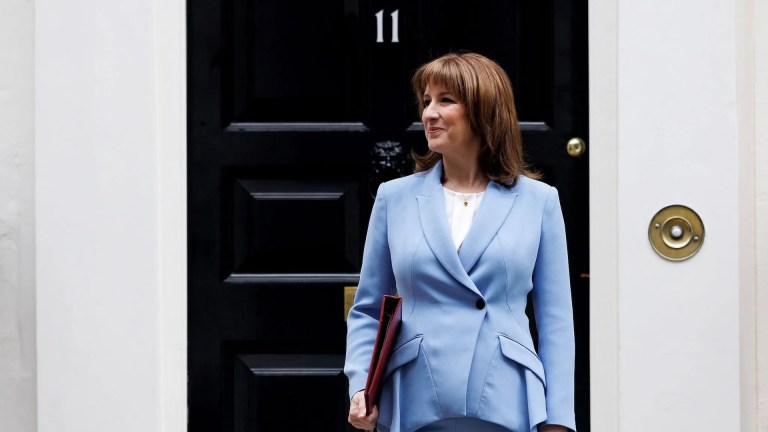“There are two key fiscal rules. The first says that we should fund day-to-day spending on public services – like the NHS and government departments – with money coming in from taxes. The second is the ‘debt rule.’”
The latter rule – that at the end of five years, government debt as a percentage of GDP needs to be falling – makes it hard to invest in public infrastructure, because it limits how much the government can borrow.
The Institute for Public Policy Research (IPPR) came up with a solution. Instead of using the previous government’s rule that says net public debt should be falling in year five of the economic forecast, the government should commit to public sector net worth increasing after five years.
This shift would enable the government to borrow an additional £57bn in the budget, the think tank claims.
“Altering that rule would free up a lot of resources for investment,” IPPR research fellow Pranesh Narayanan told the Big Issue. “And if you’re borrowing to invest, then you have more space to spend on your day-to-day spending, which ultimately means fewer cuts.”
Reeves has not yet revealed which of the various debt measures under consideration has been chosen.
Advertising helps fund Big Issue’s mission to end poverty
Tax wealth in the budget
Labour has pledged not to hike taxes on “working people”, ruling out increases to VAT, income tax and National Insurance in the autumn budget.
But the government could still close the “real holes” in our tax system, says Tax Justice UK’s Palmer. “For example, Rishi Sunak pays the same effective tax rate as the average teacher,” he said. “It’s not because he’s hiding all his money offshore. It’s because most of his money is coming from investments, and he pays a lower tax rate than what people who work for a living pay.”
The highest rate of capital gains tax is 28%, compared to the 45% higher rate of income tax. Reforming CGT to bring it in line with income tax would raise about £8bn per year, the Resolution Foundation estimates.
“The chancellor has a few options to make the tax system more efficient and to ensure the burden does fall on the broadest shoulders,” said Fry.
Reforms to inheritance tax is one such option, Narayanan said.
“The children of baby boomers are about to inherit these big windfalls,” he explained. “If you don’t want that to make inequality even worse, then you have to make sure that people with inheritances are paying their fair share.”
Advertising helps fund Big Issue’s mission to end poverty
The government charges a 40% levy on estates worth more than £325,000. Business and agricultural property exemptions often mean that no tax is paid at all. According to the Institute for Fiscal Studies, ending such “unjustified exemptions” would raise around £2bn a year.
Tax Justice UK is also calling for a straightforward wealth tax – a 2% levy on individuals who own assets worth more than £10m. They claim that this tax on 0.04% of the UK population would raise up to £22bn annually
Invest, invest, invest
The chancellor has inherited plans to cut public investment from 2.4 to 1.7% of GDP by 2028-29.
Reversing these “damaging cuts” will require around £30bn of additional annual capital expenditure by the end of this parliament. But it would prevent a “doom loop” of future costs, said Narayanan, ultimately saving money.
“You can spend money in ways that prevent costs building up in the future,” he said. “Take healthcare for example. If you reduce the number of hospital appointments, sure, you’ve saved some money in the short term. But that means that more people get sick, which has a higher economic cost in the long run.”
Do you have a story to tell or opinions to share about this? Get in touch and tell us more. Big Issue exists to give homeless and marginalised people the opportunity to earn an income. To support our work buy a copy of the magazine or get the app from the App Store or Google Play.
Advertising helps fund Big Issue’s mission to end poverty









